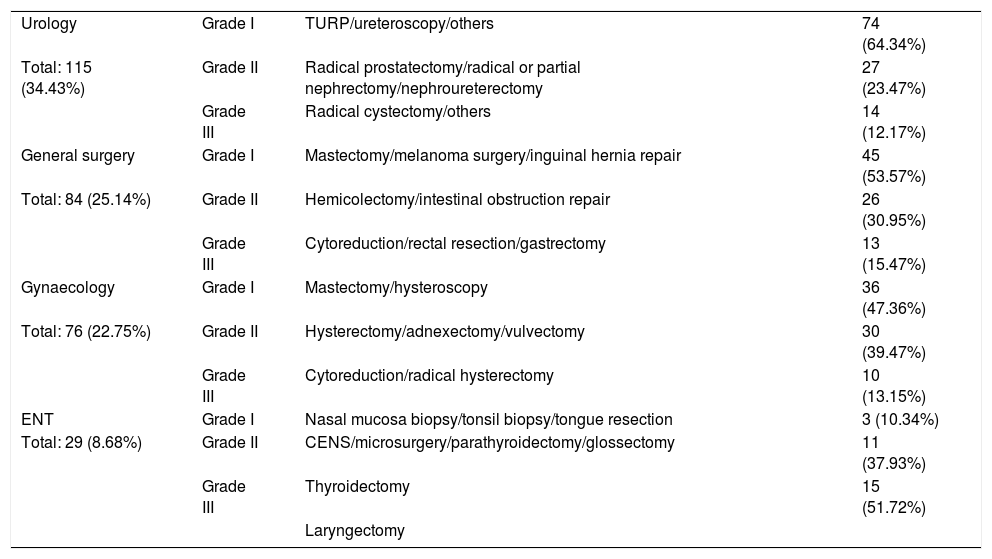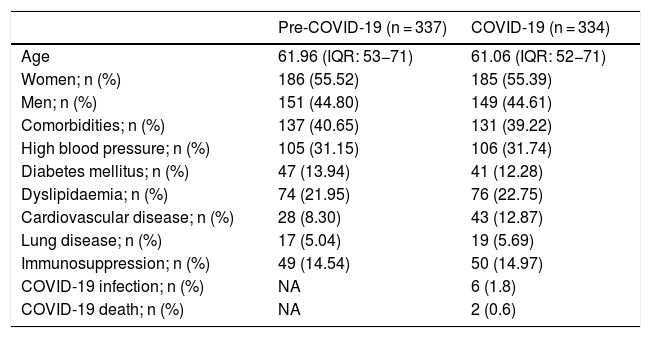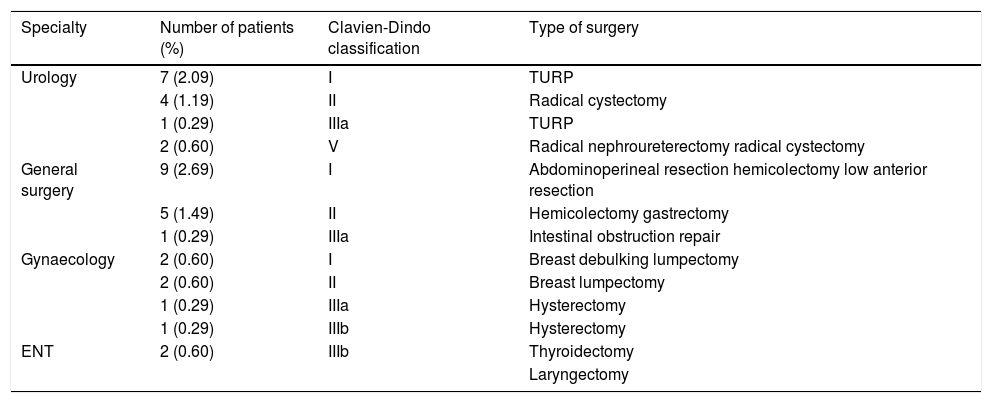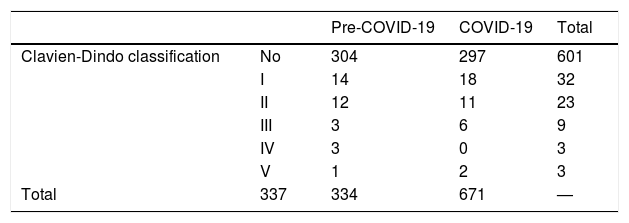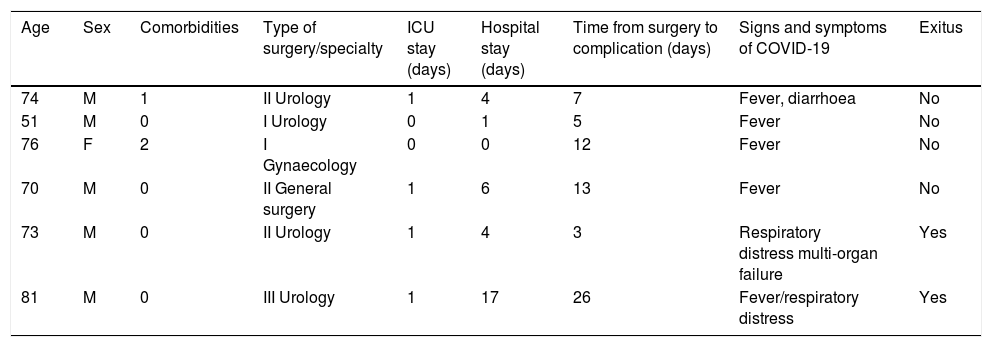Surgical treatment during Covid-19 pandemic is controversial. Currently, most clinical guidelines advise to defer surgical patients during the Covid-19 pandemic, although the supporting data is sparse. We assumed that a Covid-19-free hospital, on the back of strong isolation measures and targeted screening, could reduce complications and enable us to continue treating high-risk patients.
MethodsProspective study with retrospective analysis of 355 patients who had undergone nondeferrable oncological surgery between March 16th, 2020, and April 14th, 2020, at our institution. The aim of the study was to assess the hospital restructuring and surgical protocols to be able to safely handle non-deferrable surgeries during the first wave of the Covid-19 pandemic. We implemented structural changes and an updated surgical-anesthetic protocol in order to isolate Covid-19 patients from other surgical patients. Comprehensive targeted screening for Covid-19 patients was made. PCR tests were requested for suspected Covid-19 patients. We analyzed mortality and complications related to both surgery and Covid-19 during hospital admission and also 15 and 30 days after surgery. We compared it with a sample of similar patients in the pre-pandemic period.
ResultsOf the 355 patients enrolled in our study, 21 were removed due to Covid-19 infection, leaving a total of 334 patients in our final analysis. Post-operative complications were found in 37 patients (11.07%). Two patients died after surgery (0.6%). At the end of the study, Covid-19-related adverse outcomes were detected in six patients (1.79%). When comparing the complications of our original sample with the complications that occurred in the pre-covid era, we found no statistically significant differences.
ConclusionsOur results show that the surgical treatment of oncologic patients during the Covid-19 pandemic is safe, as long as the hospital performs surgeries under strict isolation measures and a robust screening method. It is necessary to select Covid-19 free hospitals for this matter in this and future pandemics.
El tratamiento quirúrgico durante la pandemia de Covid-19 es controvertido. Actualmente, la mayoría de las guías clínicas recomiendan posponer la cirugía a los pacientes durante la pandemia de Covid-19, aunque los datos de apoyo son escasos. Asumimos que un hospital sin Covid-19, apoyado en fuertes medidas de aislamiento y exámenes de detección específicos, podría reducir las complicaciones y permitirnos continuar tratando a pacientes de alto riesgo.
MétodosEstudio prospectivo con análisis retrospectivo de 355 pacientes sometidos a cirugía oncológica no diferible entre el 16 de marzo de 2020 y el 14 de abril de 2020 en nuestra institución. El objetivo del estudio fue valorar la reestructuración hospitalaria y de los protocolos quirúrgicos para poder manejar con seguridad las cirugías no diferibles durante la primera ola de pandemia por Covid-19. Implementamos cambios estructurales y un protocolo de anestésico-quirúrgico actualizado para aislar a los pacientes con Covid-19 de otros pacientes quirúrgicos. Se realizó una evaluación exhaustiva dirigida a detectar pacientes con Covid-19. Se solicitaron pruebas de PCR para pacientes sospechosos de Covid-19. Analizamos la mortalidad y las complicaciones relacionadas tanto con la cirugía como con la Covid-19 durante el ingreso hospitalario y también a los 15 días y al mes de la cirugía. Comparamos nuestros resultados con una muestra de pacientes similar en el periodo pre-pandemia.
ResultadosDe los 355 pacientes incluidos en nuestro estudio, 21 fueron eliminados debido a la infección por Covid-19, lo que deja un total de 334 pacientes en nuestro análisis final. Se encontraron complicaciones postoperatorias en 37 pacientes (11,07%). Dos pacientes fallecieron tras la cirugía (0,6%). Al final del estudio, se detectaron resultados adversos relacionados con Covid-19 en seis pacientes (1,79%). Al comparar las complicaciones de nuestra muestra original con las que ocurrieron en la era pre-Covid-19, no encontramos diferencias estadísticamente significativas.
ConclusionesNuestros resultados muestran que el tratamiento quirúrgico de los pacientes oncológicos durante la pandemia de Covid-19 es seguro, siempre que el hospital realice cirugías bajo estrictas medidas de aislamiento y un método de detección robusto. Es necesario seleccionar hospitales libres de Covid-19 con este objetivo en esta y futuras pandemias.








